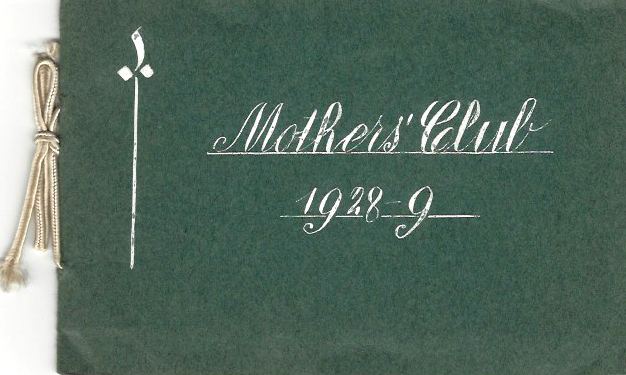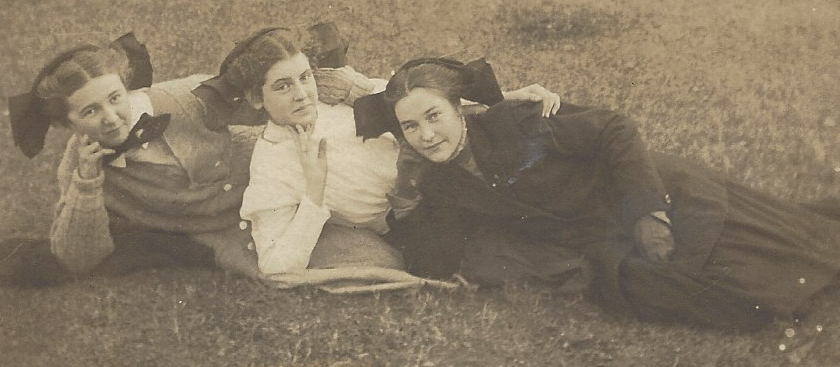Every woman that is the Mother of one child or children, should get a pension, it does not make any difference who she is, a Mother is enough. Soldiers draw a pension, why not a Mother?
So declared Barren County native Virginia Edmunds in a 1915 letter to her sister. Foretelling today’s proposals to enact a “Marshall Plan for Moms” struggling with work, childcare and healthcare during the COVID-19 pandemic, she reminds us that over generations, Kentucky women have grappled with what most see as the greatest joy and the greatest challenge of their lives. They have grumbled and protested, but they have also campaigned, organized, survived and even triumphed in the experience of motherhood.
Take Bowling Green native Lida Calvert Obenchain, married in 1885 and the mother of four children in ten years. Though fiercely proud and protective of her brood, she despaired at the plight of the “tired, overworked housekeeper”—the all-in-one “cook, scullion, nurse, laundress, charwoman, dining room servant, and chambermaid” tasked with care of the “new baby that is laid in the cradle every two or three years.” She became a convert to woman suffrage as a way to protect the interests of all such women, and cited with approval an idea of author and reformer Charlotte Perkins Gilman to establish cooperative kitchens to supply families with prepared food and other domestic assistance. Like Virginia Edmunds, she called for tangible measures to back up the routine paeans her culture offered to motherhood.
Virginia, however, was quick to point out that she would have done it for free. She had spent “the best part of this life in bringing up a family” and had “not a word to say against it, for it was my duty, and I took pleasure in it.” On February 12, 1925, a group of Bowling Green women with the same approach organized the Mothers Club to enhance their experience of both the duties and the pleasures of raising children. They adopted their club constitution with a view to “appreciating the advantages of friendship; believing in mental, spiritual and physical development; and recognizing the value of training our children for future citizens.”
Over its 73-year existence, the Mothers Club fulfilled its mission with programs, social activities, and civic uplift. Its first year included programming on “Care of Children’s Teeth,” “Food for the Pre-School Child and School Lunches,” “Heredity and Environment,” “Music for Children,” and “Adapting Discipline to Individual Temperament.” The club, recalled member Ruth Brown Denhardt, was “a very staid organization” when she joined in 1947. Dressed in their hats, gloves and best dresses, members addressed each other as “Mrs.” and presented programs assigned to them by a committee, not chosen by themselves. Children and husbands were guests at an annual picnic, and members also conducted a book exchange.
As their children grew older and social conventions less formal, Mothers Club members turned increasingly to literary and educational pursuits at their meetings. Through charter memberships and reunions, nevertheless, they maintained the bonds between those who had joined the club as harried young mothers and left it as grandmothers. Like today, shared understandings in challenging times sustained them. Harriet Downing, the wife of WKU President Dero Downing, joined the club in 1952 and valued the friendships she made as much as the “many valuable lessons on motherhood” she absorbed from the programs.
Click on the links to access finding aids for these collections about mothers, part of the Manuscripts & Folklife Archives of WKU’s Department of Library Special Collections. For more collections, search TopSCHOLAR and KenCat.


